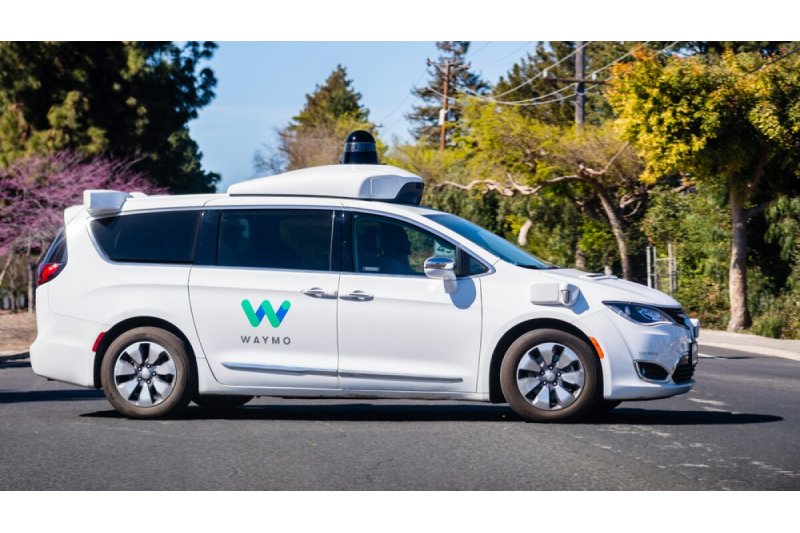
Waymo has been Permitted to Begin Offering Robotaxi Services in Los Angeles
- Business
- March 2, 2024
The driverless taxi service is expected to debut in the upcoming months after state regulators approved Waymo’s expansion into San Mateo and Los Angeles counties on Friday.
Although the exact launch date of Waymo services in Los Angeles is still unknown, the California Public Utilities Commission’s decision will allow a fleet of autonomous vehicles to operate on the city’s streets, even as safety concerns and public criticism of self-driving cars persist.
Alphabet, the parent company of Google, owns Waymo, formerly known as the Google self-driving car project, which is currently operational in certain areas of San Francisco.
For the purpose of testing and advertising, the company is permitted to run completely autonomous vehicles and transport members of the public. It has been testing driverless white Jaguars in Los Angeles for over a year. In Los Angeles County, an invitation-only window opened for business last year.
“As always, we’ll take a careful and incremental approach to expansion by continuing to work closely with city officials, local communities and our partners to ensure we’re offering a service that’s safe, accessible and valuable to our riders,” Waymo spokesperson Julia Ilina said in a statement.
However, there has been some doubt about Waymo’s growth, and the cars have occasionally been the subject of vandalism. An empty Waymo car was set on fire by a mob in Chinatown, San Francisco, last month, though it’s not quite obvious why.
Concerns over the use of autonomous vehicles have been voiced by Los Angeles officials, and some have supported legislation put up by state senator Dave Cortese (D-San José) that would give local government additional authority to control them.
Supervisor for L.A. County Janice Hahn referred to the CPUC’s approval as “a dangerous decision.”
“These robotaxis are far too untested and Angelenos shouldn’t be Big Tech’s guinea pigs. Decisions like this one should be informed by cities, not made over city objections,” Hahn said in a statement.
The Teamsters Joint Council 7 president, Peter Finn, stated that the commission’s ruling was made less than a month after Waymo issued a recall due to a software problem. The union represents drivers of freight and delivery trucks. Events in Phoenix in December that had two Waymo cars striking the same pickup truck shortly after each other as it was being transported served as the impetus for that recall.
“The fact that this permit is being granted following such a fiasco raises a lot of questions about the due diligence conducted during this process and how forthcoming Waymo is with both regulators and the general public,” Finn said in a statement.
At the moment, municipal governments have no influence on the commercial use of autonomous vehicles. Despite letters of objection from representatives of several transportation agencies, as well as South San Francisco, San Mateo, and Los Angeles counties, the CPUC approved Waymo’s operations expansion.
The Los Angeles Department of Transportation protested to the commission, stating that more oversight of the automated cars prior to their deployment and standardization of disengagement rules are necessary.
“Any expansion by Waymo will set a precedent for these companies and those looking to enter the marketplace to deploy without any rules or safeguards in place that were promulgated without meaningful coordination with local jurisdictions,” the letter stated.
Mayor Karen Bass of Los Angeles requested in November that authorities look into autonomous cars more closely and that the city should have a say in how they are governed.
She was pointing to a Waymo autonomous vehicle that was traveling through Los Angeles at the moment, which had first ignored a traffic cop’s request to stop at Beaudry Avenue and Wilshire Boulevard on August 3, 2023. The policeman had been indicating to vehicles traveling east and west to stop.
The California Chamber of Commerce, the Epilepsy Foundation of Northern California, United Way Bay Area, and Southern California Resource Services for Independent Living were among the groups who sent letters of support for the Waymo expansion.
San Mateo County Attorney John D. Nibbelin objected before the commission approved the proposal, claiming the county had sufficient knowledge about the expansion plans and had not engaged Waymo sufficiently.
“The ‘quick and simplified’ advice letter review process … is insufficient to develop the evidence necessary to fully understand the potential impacts and issues Waymo’s expansion into San Mateo County will create, including accounting for the differing needs and hurdles Waymo will face operating in San Mateo County,” Nibbelin’s letter to the commission stated.